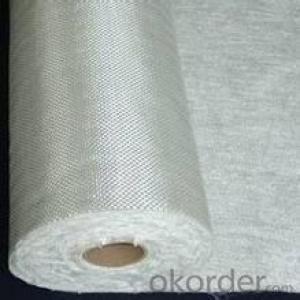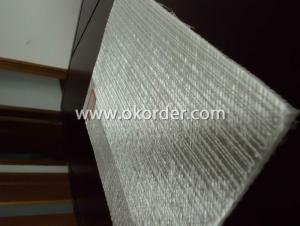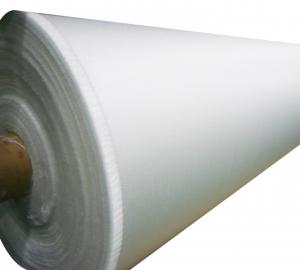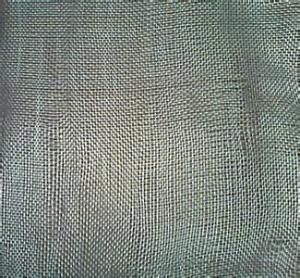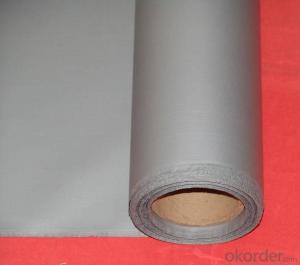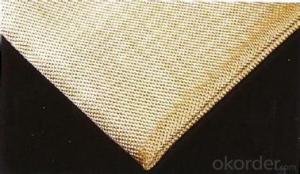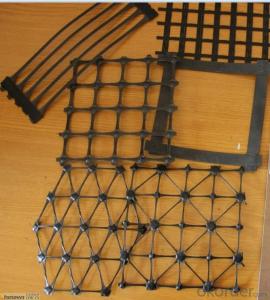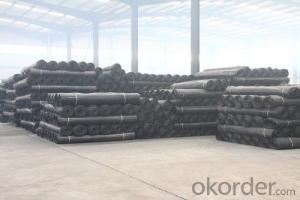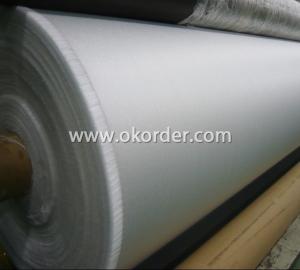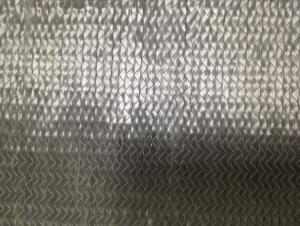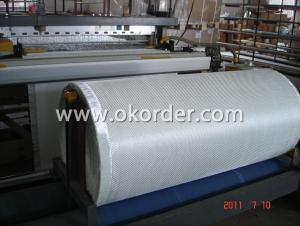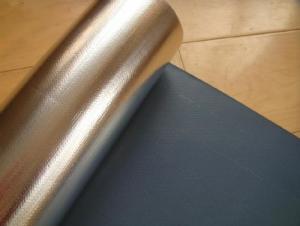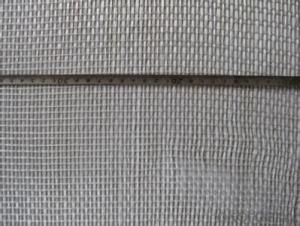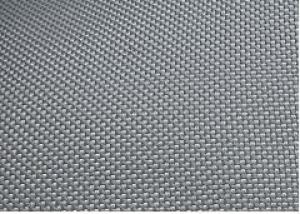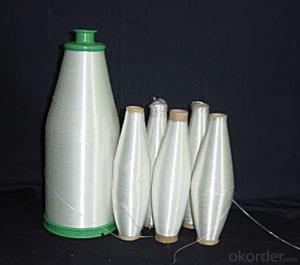Silica Fiber Glass Cloth
- Loading Port:
- China Main Port
- Payment Terms:
- TT OR LC
- Min Order Qty:
- -
- Supply Capability:
- -
OKorder Service Pledge
Quality Product, Order Online Tracking, Timely Delivery
OKorder Financial Service
Credit Rating, Credit Services, Credit Purchasing
You Might Also Like
Quick Details
| Place of Origin: | Brand Name: | Model Number: | |||
| Application: | Weight: | Surface Treatment: | |||
| Width: | Weave Type: | Yarn Type: | |||
| Alkali Content: | Standing Temperature: |
Packaging & Delivery
| Packaging Detail: | 50m/carton |
| Delivery Detail: | about 20days |
Specifications
1. High silica glass fiber cloth.
2. High temperature resistance.
3. Instant working temp.: 1400C degree
- Q:Are fiberglass fabrics suitable for use in the transportation industry?
- Yes, fiberglass fabrics are suitable for use in the transportation industry. They offer excellent strength-to-weight ratio, durability, and resistance to various environmental conditions. They are commonly used in the manufacturing of automobile components, aircraft parts, and marine vessels due to their high mechanical properties and ability to withstand harsh environments.
- Q:Roof with a single group of waterproof coating and glass fiber cloth done, but the past is still in the seam water seepage, how should remediation?
- The 911 one component waterborne polyurethane waterproof coating, construction, processing the original leak, clean it up, the best to the original paint and glass fiber cloth clean, with 911 of one component waterborne polyurethane waterproof coating in the crevice of a brush, brush the width of the slot width is 200MM. Brush two more than the first width, the thickness of long to 1MM, third brush width of two width, thickness of 0.2MM can be.
- Q:What are the different coating options available for fiberglass fabric?
- There are several coating options available for fiberglass fabric. These coatings are designed to enhance the fabric's properties and make it suitable for various applications. 1. Silicone Coating: Silicone coating provides excellent heat resistance and can withstand high temperatures. It also offers good chemical resistance, making it suitable for applications in industries such as aerospace, automotive, and insulation. 2. Polyurethane Coating: Polyurethane coating provides a durable and flexible finish to fiberglass fabric. It offers good abrasion resistance, waterproofing, and UV stability. This coating is commonly used in applications like outdoor covers, tents, and awnings. 3. PTFE Coating: PTFE (Polytetrafluoroethylene) coating is known for its non-stick properties and high resistance to chemicals, heat, and weathering. It provides excellent electrical insulation and low friction properties. PTFE coated fiberglass fabric is commonly used in applications such as conveyor belts, release sheets, and insulation. 4. Acrylic Coating: Acrylic coating provides a smooth finish and enhances the fabric's durability and strength. It offers good resistance to UV rays, mildew, and abrasion. This coating is commonly used in applications like marine covers, outdoor furniture, and bags. 5. Neoprene Coating: Neoprene coating provides excellent resistance to oil, chemicals, and weathering. It also offers good flame resistance and flexibility. This coating is commonly used in applications such as protective clothing, gloves, and industrial curtains. 6. Vinyl Coating: Vinyl coating provides a waterproof and durable finish to fiberglass fabric. It offers good resistance to UV rays, abrasion, and chemicals. This coating is commonly used in applications like outdoor furniture, truck covers, and pool liners. These are just a few examples of the different coating options available for fiberglass fabric. The choice of coating depends on the specific requirements of the application, such as heat resistance, chemical resistance, flexibility, and durability.
- Q:Is fiberglass fabric suitable for making protective clothing?
- Yes, fiberglass fabric is suitable for making protective clothing. It is known for its fire resistance, high strength, and durability, making it an ideal choice for protective gear in industries such as firefighting, welding, and chemical handling. Additionally, fiberglass fabric offers excellent insulation properties and is resistant to chemicals, making it a reliable material for protecting against hazards.
- Q:Can fiberglass fabrics be custom-designed or printed on?
- Yes, fiberglass fabrics can be custom-designed or printed on. This allows for endless possibilities in terms of creating unique patterns, designs, or even branding on fiberglass fabrics.
- Q:Can fiberglass fabric be used for gaskets?
- Yes, fiberglass fabric can be used for gaskets. It is a versatile material that offers good resistance to high temperatures, chemicals, and mechanical stress. Additionally, fiberglass fabric can provide excellent sealing properties, making it suitable for various gasket applications.
- Q:What are the different surface textures available for fiberglass fabric?
- There are various surface textures available for fiberglass fabric, including smooth, coarse, woven, knitted, and textured.
- Q:How does fiberglass fabric perform in high-vibration environments?
- Fiberglass fabric performs exceptionally well in high-vibration environments due to its unique properties. The inherent stiffness and high strength-to-weight ratio of fiberglass make it highly resistant to vibrations and mechanical stress. When subjected to vibrations, fiberglass fabric effectively absorbs and dissipates the energy, reducing the impact and minimizing potential damage. One of the key advantages of fiberglass fabric is its excellent damping characteristics. It possesses the ability to absorb and dampen vibrations, preventing them from propagating and amplifying throughout the structure. This quality is crucial in high-vibration environments where excessive oscillations can lead to structural fatigue, reduced performance, or even failure. Additionally, fiberglass fabric is known for its exceptional durability and resistance to corrosion, which further enhances its performance in high-vibration environments. This material can withstand prolonged exposure to intense vibrations without experiencing degradation or loss of mechanical properties. Moreover, fiberglass fabric offers versatility in design and application. It can be easily molded or woven into various shapes and sizes, allowing it to be tailored to specific needs in high-vibration environments. Whether used as a reinforcement material in composites or as a standalone fabric, fiberglass provides reliable and long-lasting performance under demanding conditions. In summary, fiberglass fabric excels in high-vibration environments due to its stiffness, strength, damping properties, durability, and resistance to corrosion. Its ability to absorb and dissipate vibrations, combined with its versatility in design, makes it an ideal choice for applications where mitigating vibration-induced issues is crucial.
- Q:Is fiberglass fabric resistant to chemicals used in automotive industry?
- Fiberglass fabric is generally resistant to the chemicals commonly used in the automotive industry. It is well-known for its outstanding ability to withstand a wide range of chemicals, including oils, fuels, solvents, and acids. Because of this, it is a suitable material for various automotive applications, such as insulation, reinforcement, and protective covers. Moreover, fiberglass fabric is also heat-resistant, lightweight, and possesses a high strength-to-weight ratio, making it a preferred choice in the automotive manufacturing field. However, it is crucial to acknowledge that the specific chemical resistance of fiberglass fabric may vary depending on the type and quality of the fabric, as well as the concentration and duration of exposure to the chemicals. Therefore, it is advisable to consult the manufacturer's specifications and testing data to ensure the suitability of fiberglass fabric for a specific chemical application in the automotive industry.
- Q:Can fiberglass fabric be used for insulation in pharmaceutical facilities?
- Yes, fiberglass fabric can be used for insulation in pharmaceutical facilities. It is a commonly used material due to its excellent thermal insulation properties, fire resistance, and ability to withstand high temperatures. Additionally, it is lightweight, durable, and cost-effective, making it suitable for various applications in pharmaceutical facilities.
1. Manufacturer Overview |
|
|---|---|
| Location | |
| Year Established | |
| Annual Output Value | |
| Main Markets | |
| Company Certifications | |
2. Manufacturer Certificates |
|
|---|---|
| a) Certification Name | |
| Range | |
| Reference | |
| Validity Period | |
3. Manufacturer Capability |
|
|---|---|
| a)Trade Capacity | |
| Nearest Port | |
| Export Percentage | |
| No.of Employees in Trade Department | |
| Language Spoken: | |
| b)Factory Information | |
| Factory Size: | |
| No. of Production Lines | |
| Contract Manufacturing | |
| Product Price Range | |
Send your message to us
Silica Fiber Glass Cloth
- Loading Port:
- China Main Port
- Payment Terms:
- TT OR LC
- Min Order Qty:
- -
- Supply Capability:
- -
OKorder Service Pledge
Quality Product, Order Online Tracking, Timely Delivery
OKorder Financial Service
Credit Rating, Credit Services, Credit Purchasing
Similar products
New products
Hot products
Hot Searches
Related keywords
